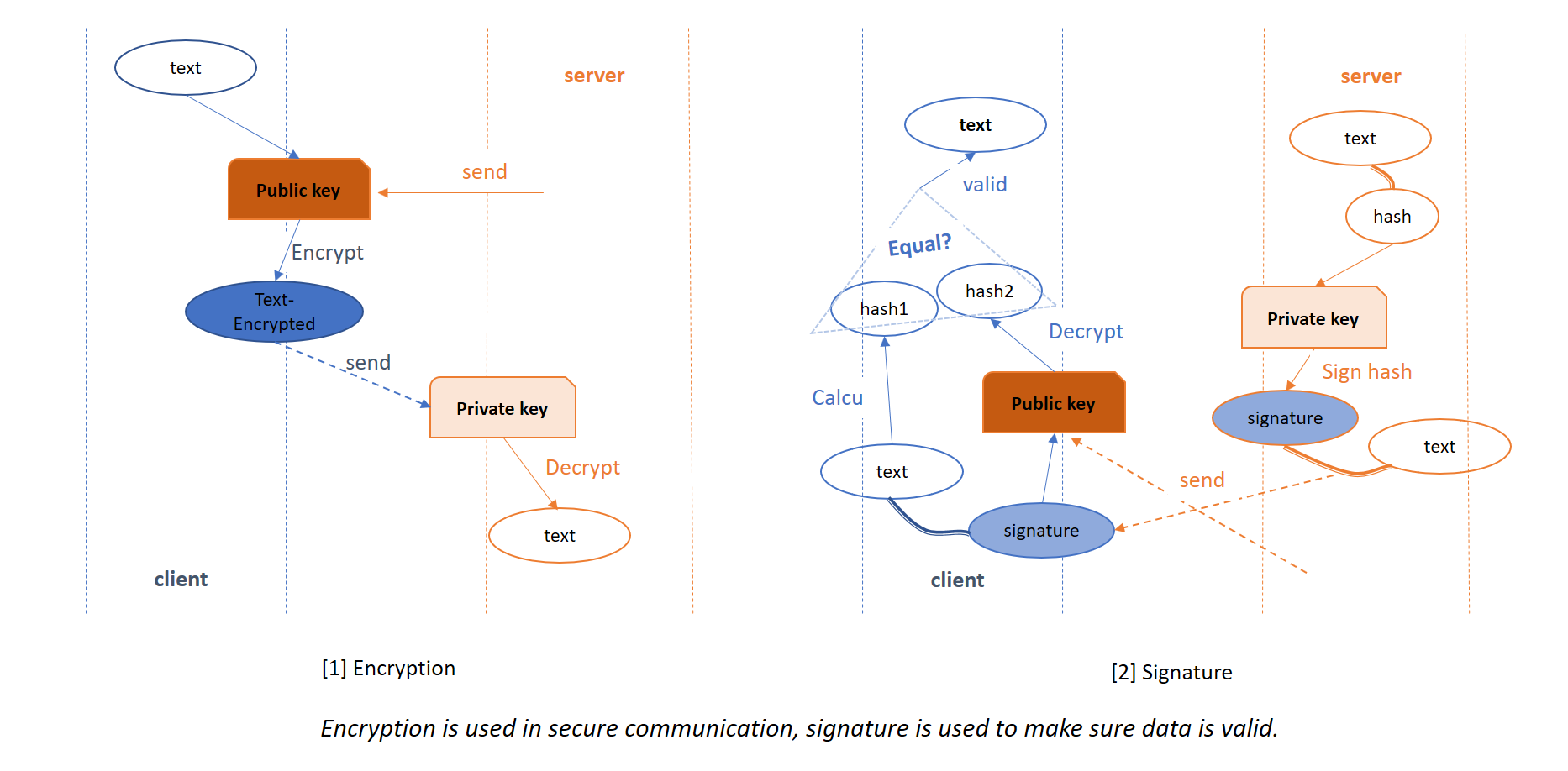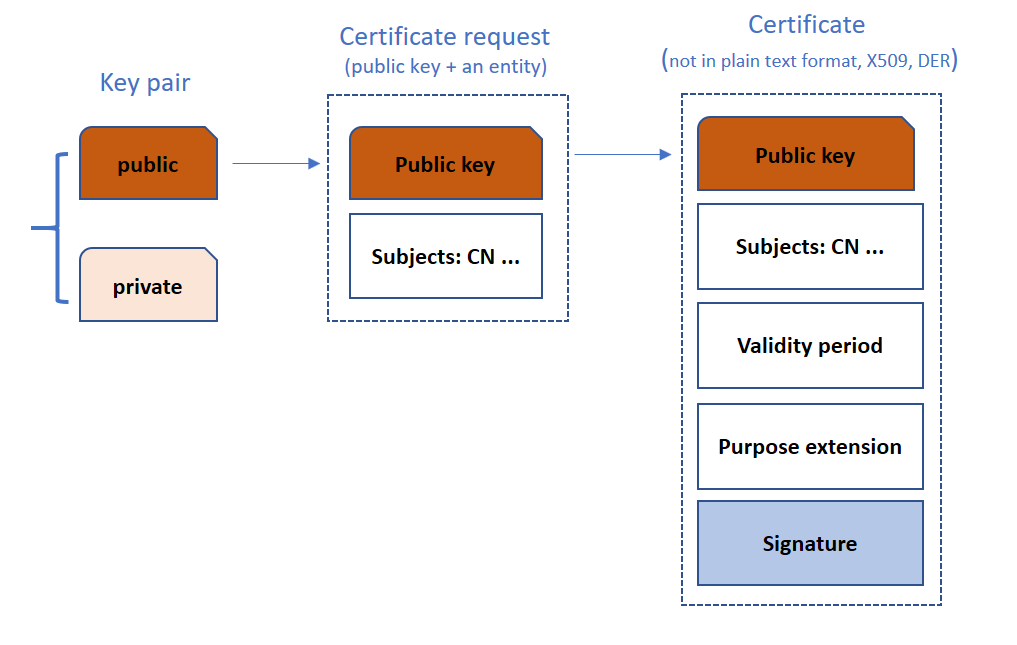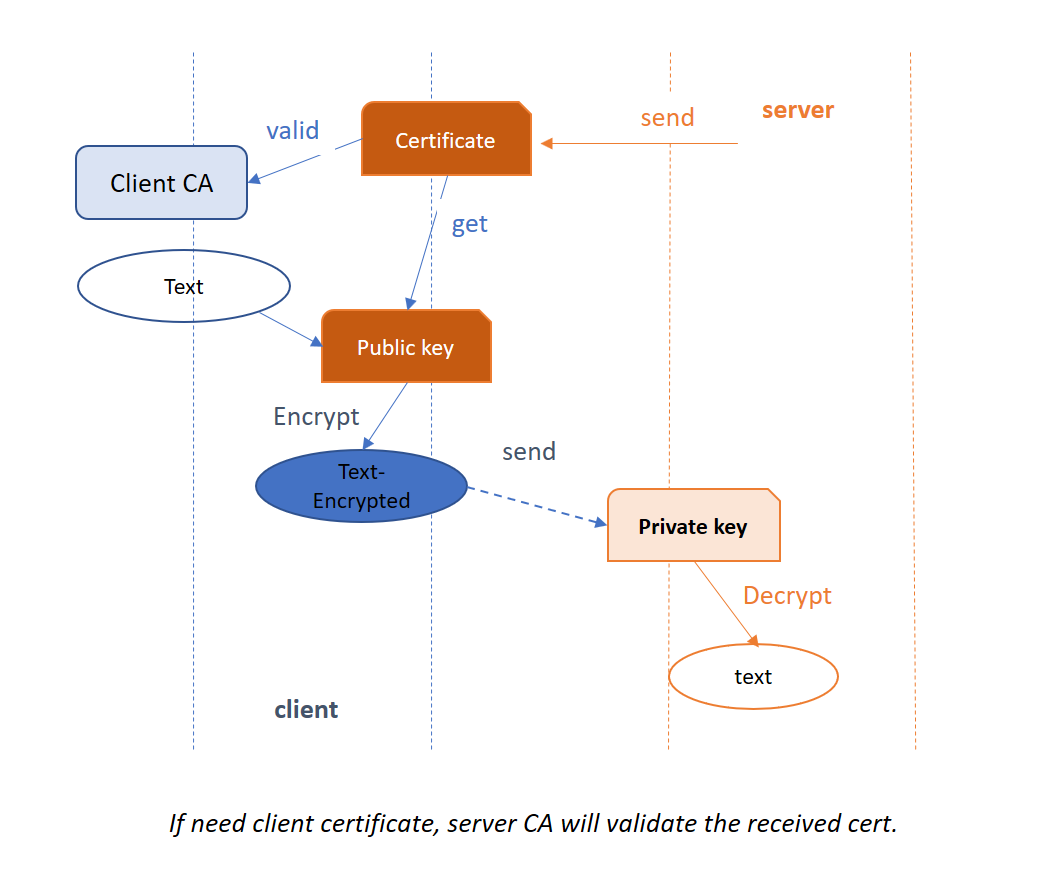![]()
![]()
![]()
openssl commonly used commands
before use Configure to generate Makefile, should notice follow options
--prefix=DIR // install dir
--libdir=DIR // install dir
--openssldir=DIR // Directory for OpenSSL configuration files, and also the default certificate and key store
use no-[option] or enable-[option] to turn off/on certion function.
# openssl genrsa -des3 -out private.key 2048
# public key is also contained by private.key
openssl genrsa -out private.key 2048
openssl req -new -key private.key -out cert.csr -subj "/C=CN/ST=sh/O=Internet Widgits Pty Ltd/CN=www.baidu.com"
openssl x509 -days 360 -req -in cert.csr -signkey private.key -out cert.crt
openssl x509 -in cert.crt -noout -text
# openssl req -x509 -nodes -days 365 -newkey rsa:2048 -keyout private.key -out cert.crt -subj "/C=CN/ST=sh/O=Internet Widgits Pty Ltd/CN=www.baidu.com" -extensions v3_ca
# CA
# if we want to sign a self-signed certificate we can use command:
# openssl req -x509 -nodes -days 365 -newkey rsa:2048 -keyout private.key -out cert.crt "/C=CN/ST=sh/O=Internet Widgits Pty Ltd/CN=www.baidu.com" # -extensions v3_ca
# if not, we use step 2), for which we must build an CA first.
echo "create CA"
mkdir demoCA
cd demoCA
mkdir certs crl private newcerts
touch index.txt index.txt.attr
echo "01" > serial
cd ..
openssl genrsa -out demoCA/private/cakey.pem 2048
openssl req -new -key demoCA/private/cakey.pem -out cert.csr -subj "/C=CN/ST=sh/O=Internet Widgits Pty Ltd/CN=www.baidu.com"
yes|openssl ca -selfsign -in cert.csr -extensions v3_ca
cp demoCA/newcerts/01.pem demoCA/cacert.pem
echo "Done"
echo " using CA sign a certificate, same countryName, provinceName, OrganizationName"
openssl genrsa -out private.key 2048
openssl req -new -key private.key -out cert.csr -subj "/C=CN/ST=sh/O=Internet Widgits Pty Ltd/CN=www.bing.com"
yes|openssl ca -in cert.csr
# install CA or certificates to openssl's default stroe
# if dont do so, when test, we should use -CAfile or -CApath to specify CA
sudo cp demoCA/newcerts/01.pem /usr/local/ssl/certs
cd /usr/local/ssl/certs
sudo ln -s 01.pem `openssl x509 -noout -hash -in 01.pem`.0
openssl verify -CApath ./ 01.pem
# test
openssl s_server -key key.pem -cert cert.pem -CAfile demoCA/cacert.pem -accept 44330 -www -Verify 2
# or through browser
# here we can generate another certificate for client
openssl s_client -key key.pem -cert cert.pem -CAfile demoCA/cacert.pem -connect localhost:44330
# add extention to certificate
# or we can create a extion file
https://comm.support.ca.com/kb/adding-custom-x509-extensions-to-certificate-signing-requests/kb000042912
# is common name mandatory?
https://security.stackexchange.com/questions/55414/is-the-common-name-mandatory-for-digital-certificates






 浙公网安备 33010602011771号
浙公网安备 33010602011771号